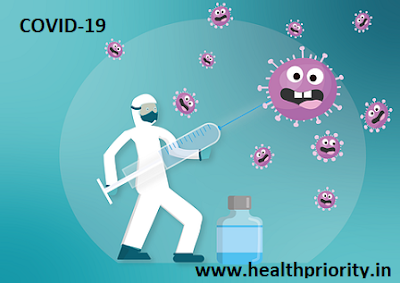The COVID-19 pandemic has been a challenging time for healthcare professionals and patients alike. While vaccination efforts are ramping up globally, many people are still at high risk for contracting COVID-19. If you're one of those people, it's essential to know how best to manage non-severe COVID-19 symptoms.
 |
| How To Manage Non-Severe Covid-19 In Patients at high Risk? |
First and foremost, it's important to understand what non-severe COVID-19 means. These are cases where the person infected with the virus is experiencing mild or moderate symptoms. In most cases, non-severe cases of COVID-19 can be managed at home. However, if you are at high risk for complications from COVID-19, it's crucial to keep a close eye on your symptoms and regularly communicate with your healthcare provider.
So, who is at high risk for COVID-19 complications? The CDC states that older adults (over the age of 65), people with underlying medical conditions such as heart disease, diabetes, or obesity, and pregnant women are all at higher risk for severe illness from COVID-19. If you fall into any of these categories, it's vital to take extra precautions to protect yourself from COVID-19.
 |
| How To Manage Non-Severe Covid-19 In Patients at high Risk? |
One of the most important things you can do is to monitor your symptoms carefully. Symptoms of COVID-19 can include fever, cough, fatigue, shortness of breath, body aches, sore throat, diarrhea, and more. If you experience any of these symptoms, it's important to reach out to your healthcare provider right away.
While there is no specific cure for COVID-19, there are various treatments available that can help manage symptoms. For example, if you have a fever, over-the-counter medications like acetaminophen or ibuprofen can help bring your temperature down. If you have a cough, your doctor may recommend cough suppressants or expectorants. It's also essential to stay hydrated by drinking plenty of fluids, such as water, tea, or juice.
 |
| How To Manage Non-Severe Covid-19 In Patients at high Risk? |
It's important to note that certain medications, such as corticosteroids or non-steroidal anti-inflammatory drugs (NSAIDs), may not be appropriate for everyone. If you have an underlying medical condition or are taking other medications, it's essential to talk to your healthcare provider before starting any new treatments.
In addition to managing symptoms, it's crucial to prevent the spread of COVID-19 to others. If you live with others, try to isolate yourself in a separate part of the house and wear a face mask when interacting with others. It's also essential to practice good hand hygiene by washing your hands frequently with soap and water for at least 20 seconds.
Finally, it's important to stay informed about the latest COVID-19 guidelines and recommendations. The situation is constantly evolving, and recommendations may change depending on your location, risk factors, and other factors. Keep in touch with your healthcare provider and be prepared to adapt your strategy as needed.
 |
| How To Manage Non-Severe Covid-19 In Patients at high Risk? |
Managing non-severe COVID-19 symptoms in patients at high risk requires careful monitoring, effective symptom management, and a commitment to preventing the spread of the virus. By staying informed, communicating with your healthcare provider, and following the recommended guidelines, you can reduce your risk of complications and protect others from the spread of COVID-19.

ConversionConversion EmoticonEmoticon